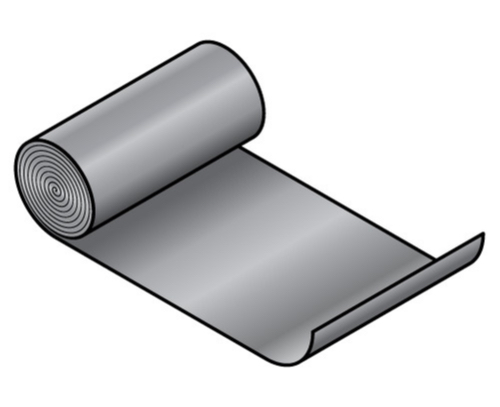The characteristics of the element lead make it a great metal to use for a wide variety of applications. Its high density, low melting point, ductility, and relative inertness make it a valuable element. Since lead is highly malleable it can be shaped into different shapes and forms such as sheet lead.
How is Sheet Lead Made?
Today there are two commonly used techniques when it comes to manufacturing sheet lead. One way sheet lead is produced is through a process called rolling (or milling), which involves casting lead slabs and then rolling them in a mill until the desired thickness (code) Is obtained.
The other is the direct method technique in which sheet of a specific thickness is semi-continuous cast. In this method, a water-cooled drum is immersed in a bath of molten lead and a semi-continuous sheet is cast onto the surface of the drum.
There is also another method for manufacturing lead known as sand casting. Sand casting is one of the earliest methods for manufacturing sheet lead and has been used by the Romans since 300 BC for making water pipes and coffins.
Applications Using Sheet Lead
Lead sheets are used for many different purposes and in a wide variety of industries. They are commonly used in the construction industry as architectural metals for roofing materials, cladding, flashing, gutters and gutter joints, shower pans, and flooring. The lead sheets are also used in industrial and chemical applications as well. Below you will find the most familiar uses of sheet lead.
Radiation Shielding
Lead sheets are used in shielding people from radiation in the nuclear, radiology and medical industries. Lead lined walls and leaded glass create a barrier between the x-ray machine and the x-ray technician for protection against radiation.
Roofing and Flashing
Lead can endure wide ranging temperature fluctuations, is resistant to corrosion from the atmosphere, saltwater, most natural chemicals, and UV degradation and its malleability prevents it from cracking. These properties of lead make it the ideal material for roofing and unlike other materials, a sheet of lead can be securely dressed around penetrations and joints.
Soundproofing
Another characteristic of lead that makes it useful in other industries is its ability to absorb sound and vibrations. Noise is a challenge for many industries. In the music industry lead sheets are commonly used as a sound deadening layer in the walls, floors, and ceilings of sound studios. Lead sheets are also used on machinery and industrial equipment that produce high levels of noise.
Waterproofing
High quality sheet lead is also an important tool for preventing water penetration. Waterproofing solutions are mandatory in the building industry and sheet lead serves as an impermeable moisture barrier against groundwater infiltration.
Medi-Ray produces a wide range of lead materials in sheet form for the shielding of nuclear medicine facilities and X-Ray rooms. Sheet lead shielding material is available in thin antimonial lead foils that adapt well to thin contoured applications such as electrical shielding. Sheet lead is also available in thickness well suited for walls, doors, and ceilings.
For more information on sheet lead or to get a quote, please contact us at (877) 898-3003, email sales@mediray.com, or visit our contact page and fill out our form.



